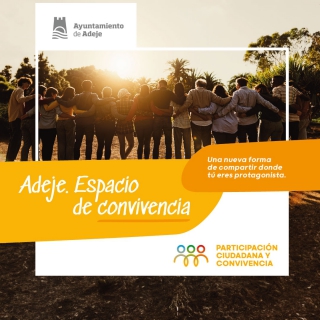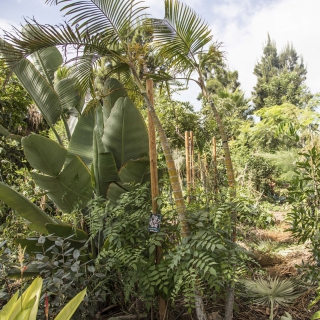GENERAL PROVISIONS
Article 1. Purpose.
This regulation aims to create and govern the ACCREDITED HEALTHY DESTINATION (AHD) quality seal to publicly recognise the establishments, centres, companies, professionals and public or private institutions that apply good practices to improve the health conditions of establishments and spaces open to the public in the Adeje area in relation to preventing the transmission of viruses such as COVID-19.
Article 2. The ACCREDITED HEALTHY DESTINATION (AHD) mark.
1. The purposes of the mark are as follows:
a) public recognition of its bearers for implementing good practices in terms of preventing the transmission of viruses such as COVID-19.
b) provide evidence-based information to Adeje citizens and visitors regarding the establishments and spaces open to the public in the area that apply good prevention practices.
c) improve the competitiveness of the area's tourism and service industries, generating added value for its range of options and resilience against new pandemics and public health threats.
2. The mark is voluntary and when granted it will exclusively entail the effects set out in this regulation.
Regarding users or visitors, the mark is merely informative in nature, offering information on the implementation of good practices and their control, and it may not serve as a basis for holding the Local Government of Adeje accountable for operation of the establishments and spaces that obtain the mark.
Article 3. Requirements for obtaining the mark.
1. The ACCREDITED HEALTHY DESTINATION (AHD) quality seal may be awarded to centres, establishments, services and spaces open to the Adeje public in which measures and protocols are applied to help improve public health conditions in the area in terms of preventing the transmission of viruses such as COVID-19.
2. To obtain the mark, the following requirements must be met, at minimum:
a) Possess, or be in the process of obtaining, the permits and authorisations required to develop the activity.
b) Satisfactorily comply with the measures, obligations and recommendations set out by the competent authorities in matters of preventing the transmission of contagious viruses or diseases such as COVID-19, as well as those specifically detailed in this regulation.
c) Certify that staff related to the establishment or service open to the public have received suitable training in prevention and develop good practices against contagious viruses and diseases.
d) Agree to submit to the control and verification actions set out in this regulation.
Article 4. Categories.
The mark may be awarded to applicants who meet the basic conditions set out in this regulation. Furthermore, there will be a “Silver” category and a “Gold” category, which may be awarded at the suggestion of the Assessment Committee mentioned in article 7, based on the nature of the activity and the degree of compliance with the specific recommendations detailed in the appendix to this regulation.
AWARD PROCEDURE
Article 5. Applications.
1. Applications to be awarded the mark must be filed using the electronic office of the Local Government of Adeje, according to the standard template available on the same during the periods authorised for this purpose.
2. Applications must be accompanied by a self-assessment questionnaire on the hygiene, sanitary and prevention measures implemented and a statement of compliance. They must also be accompanied by documents or evidence that certify the measures implemented, when indicated in the questionnaire.
3. The application, questionnaire and statement of compliance will be completed according to the standard template available on the electronic office of the Local Government of Adeje.
Article 6. Processing.
1. Processing of the file will be the responsibility of the mayor or the councillor responsible for tourism. This person will set the periods for the submission of applications and will organise all proceedings necessary until a decision is made. Applications that fail to comply with the requirement set out in article 3.2 letter a) will be excluded. This person will also be responsible for approving the standard templates and documents necessary to correctly apply the provisions of this regulation.
2. To award the “Gold” and “Silver” categories, the information provided by applicants will be the subject of prior assessment by the Canary Islands Foundation for the Control of Tropical Diseases, in collaboration with the University Institute for Tropical Diseases and Healthcare of the University of La Laguna.
The assessment will be recorded in a report, which will detail pertinent observations in relation to the requirements and recommendations assessed for obtainment of the mark.
If necessary, the report will be given to applicants so they may remedy any issues and provide the corresponding evidence.
Article 7. Assessment Committee.
1. The documentation submitted by applicants and, if applicable, the report drawn up by the Canary Islands Foundation for the Control of Tropical Diseases in collaboration with the University Institute of Tropical Diseases and Healthcare of the University of La Laguna will be evaluated by an Assessment Committee, comprising the mayor, a councillor appointed by the mayor and a representative from said Institute.
2. The mayor will chair the Committee and may delegate their attendance of said meetings to any councillor. The role of secretary will be the responsibility of a council technician, appointed by the mayor or the councillor responsible for tourism, and they will attend meetings with voice but no vote.
3. The Committee will meet as many times as necessary to assess applications and the chairperson may invite, with voice but no vote, any person – given their role, qualities, knowledge or experience – they deem pertinent so as to advise the Assessment Committee. They may also enjoy the technical support of the Canary Islands Foundation for the Control of Tropical Diseases in collaboration with the University Institute of Tropical Diseases and Healthcare of the University of La Laguna.
4. The Committee will issue an assessment report on the applications submitted and, if applicable, the recommended term of the mark's validity, according to the nature of the activity in question.
5. Where not specifically provided for in this regulation, the Committee will apply the provisions of Law 40/2015, of 1 October, on the Legal System of the Public Sector regarding how the collegiate bodies of different public administrations operate.
Article 8. Decision.
The Local Authority's Plenary Session will be responsible for awarding the seal and will come to a decision on the same based on the proposal of the mayor or the councillor responsible for tourism, in line with the Assessment Committee's report.
EFFECTS AND VALIDITY
Article 9. Effects.
1. The centres, establishments, services and spaces open to the public that are awarded the mark may display the logo and graphic elements associated with it as well as use the mark on their advertising material, social networks and communication channels, following the indications on use set by the Local Government of Adeje.
2. The Local Authority may agree to apply incentives, grants or allowances linked to obtaining the mark through any agreements or processes it deems pertinent.
Article 10. Information register.
The council department responsible for tourism will create and maintain an information register on the marks awarded and their validity, the data of which may be disclosed in the terms deemed appropriate for the purposes set out in article 2 of this regulation.
Article 11. Use of the mark.
1. Use of the mark must conform to the standards set out in this regulation as well as the conditions and indications set out and communicated or publicised by the Local Government of Adeje to achieve the purposes outlined in article 2.1.
2. Unauthorised or fraudulent use of the mark may be sanctioned by the Local Government of Adeje in accordance with the provisions of the Municipal Ordinance on the Protection of Health and Defence of Consumers and Users.
Article 12. Validity and loss of the mark.
1. Once awarded, the mark will be valid for one year, notwithstanding the fact that a greater or lesser period may be established based on the details set out in the report mentioned in article 7.4.
2. The Local Government of Adeje, in collaboration with the Canary Islands Foundation for the Control of Tropical Diseases and the University Institute of Tropical Diseases and Healthcare of the University of La Laguna, will monitor and control the validity of the requirements and conditions that justified awarding of the mark.
Beneficiaries of the mark must collaborate on monitoring and verification tasks, providing the information asked of them and facilitating checking tasks.
3. If a breach of the conditions taken into consideration to grant the mark were to be detected as a result of the monitoring and checking tasks, the mayor or the councillor responsible for tourism will inform the party involved so they may appeal the decision within a maximum of fifteen working days.
Once this time period has passed and in light of any appeals received, withdrawal of the mark will be submitted to the Local Authority's Plenary Session for consideration, if applicable.
FIRST ADDITIONAL PROVISION.
The municipal mark governed by this regulation may be used in relation to prevention and good practices against any infectious virus, bacteria or disease that the Local Government of Adeje deems relevant.
SECOND ADDITIONAL PROVISION.
The participation of the University Institute of Tropical Diseases and Healthcare of the University of La Laguna and the Canary Islands Foundation for the Control of Tropical Diseases falls within the scope of the collaboration agreement signed by the Local Government of Adeje with both entities.
The costs of the prior assessment and the reports issued by the Canary Islands Foundation for the Control of Tropical Diseases pursuant to the provisions of article 6.2 will be payable by applicants to said entity.
THIRD ADDITIONAL PROVISION.
The Local Authority's Plenary Session may authorise use of the mark to services and spaces open to the public that are the responsibility of the Local Government of Adeje itself as long as they receive a favourable report based on compliance with the requirements set out in this regulation by the Canary Islands Foundation for the Control of Tropical Diseases in collaboration with the University Institute of Tropical Diseases and Healthcare of the University of La Laguna.
FINAL PROVISION.
This regulation will come into force 15 days after its full text is published on the province's official gazette, in accordance with the provisions set out in article 70 of Law 7/1985, of 2 April, regulating the basis of the local government.
APPENDIX
RECOMMENDED GOOD PRACTICES FOR THE “GOLD” AND “SILVER” MARK CATEGORIES
- Facilitate remote working and the use of telephones and video conferences, especially if the workplace does not have spaces where employees can keep a safe interpersonal distance.
- Stagger staff entry and exit times as much as possible to facilitate interpersonal distances in the workplace.
- Establish different entry and exit doors.
- Signpost entry and exit paths or one-way systems.
- Make headphones for individual use available so employees may use the telephone.
- Install physical elements that are easy to clean and disinfect, ensuring reception/customer service staff are protected.
- Prioritise payment via telematic means.
- If payment via telematic means is not possible, centralise cash payments in a single employee with some form of support (tray, glass or similar) to prevent possible contamination.
- Place disinfecting mats at the entrance to establishments.
- Disable the air recirculation mode in air conditioning systems.
- Avoid information being provided on paper.
- Provide containers to dispose of material that has been touched by customers.
- Reduce processes at reception, offering the option to complete these using apps or telematic means.
- Make check-in and check-out times flexible.
- Provide lockers so staff may store their streetwear separate from their work clothes.
- Prioritise long-sleeved uniforms.
- Use posters in the toilets to prevent aerosols when emptying the cistern.
- Prioritise the use of automatic taps (activated via pedal or sensors).
- In swimming pools, extensive control of the pH adjustment phases, disinfection and constant measurement of residual disinfectant are recommended.
- Hotel room cleaning:
- Establish a waiting time after the customer has left the room before starting to clean it.
- Clean work areas or rooms starting from the point furthest from the door and moving towards it.
- Change gloves to clean each room.
- Remove the bin from the room so that tissues, masks, etc. are concentrated in a single bin with a lid, minimising the risks of transmission and handling.

















